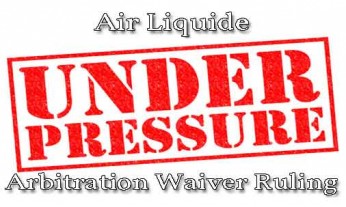 Who pays costs when an employment case is settled? The California Code of Civil Procedure makes it clear that in litigation, the prevailing party is generally entitled to recover its costs from the losing party. According to Section 1032, the “prevailing party” is either the party with a net monetary recovery, or the defendant in whose favor a dismissal is entered.
Who pays costs when an employment case is settled? The California Code of Civil Procedure makes it clear that in litigation, the prevailing party is generally entitled to recover its costs from the losing party. According to Section 1032, the “prevailing party” is either the party with a net monetary recovery, or the defendant in whose favor a dismissal is entered.
This rule is usually quite straightforward when a court awards a plaintiff money damages – or when a court dismisses a plaintiff’s entire claim. What about when the parties reach a settlement out of court, as is so often the case in employment cases? Has the plaintiff prevailed, or the defendant?
When the defendant pays a plaintiff to resolve a claim, one might expect the plaintiff to be regarded as the party with a net monetary recovery. But a California trial court recently had a different idea. After a Monterey hospital resolved a wrongful termination complaint by paying a former employee $23,500, the court ruled that the hospital had prevailed, and ordered the employee to pay the hospital’s costs.
The Facts of the Employment Case
Maureen deSaulles was hired by Community Hospital of the Monterey Peninsula as a patient business services registrar. She was fired the next year, and filed a wrongful termination complaint. Her complaint alleged seven different causes of action, including claims that the hospital failed to accommodate her medical condition, that the hospital retaliated against her for asserting her rights under California employment law, and that the hospital breached her contract (as well as an implied covenant of good faith and fair dealing).
At trial, the hospital filed a motion for summary judgment, and the court ruled that deSaulles could only make arguments and introduce evidence on two of her causes of action – breach of contract, and breach of an implied covenant of good faith and fair dealing. The parties then agreed to settle the employment case. The hospital would pay deSaulles $23,500, and the claims of breach of contract and breach of covenant would be dismissed with prejudice. The employment case agreement also allowed deSaulles the right to appeal the court’s rulings on the five other causes of action.
As expected, deSaulles appealed the court’s dismissal on the five causes of action. The appeals court upheld the trial court’s ruling on those causes of action, and the parties returned to the trial court, where both deSaulles and the hospital argued that they were entitled to recovery of costs. The trial court ruled that the hospital was the prevailing party, because it prevailed on five of the causes of action, and entered into a settlement on the remaining costs. The hospital was awarded $12,731.92 in costs, while deSaulles’s request for costs was denied.
The Employment Case Appeal
DeSaulles appealed the trial court’s ruling on costs, and a California appeals court overturned the decision, holding that deSaulles was the prevailing party. In DeSaulles v. Community Hospital of the Monterey Peninsula, a superior court ruled that when a plaintiff is paid money in exchange for a dismissal, the plaintiff has obtained a net monetary recovery, and is entitled to costs – even if the recovery is only partial. This default rule only applies, however, if the settlement agreement does not resolve the matter of costs, and does not have a provision stipulating alternate procedures for awarding costs. [Read more…]









